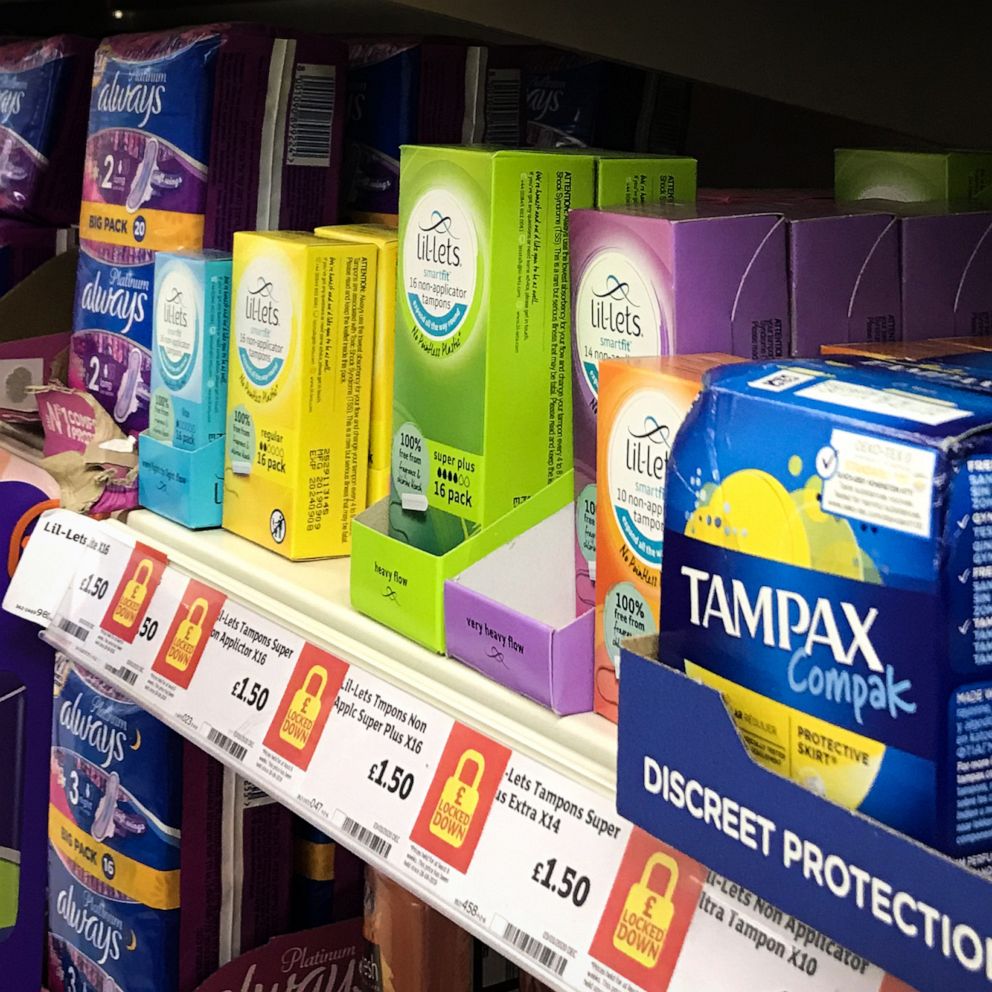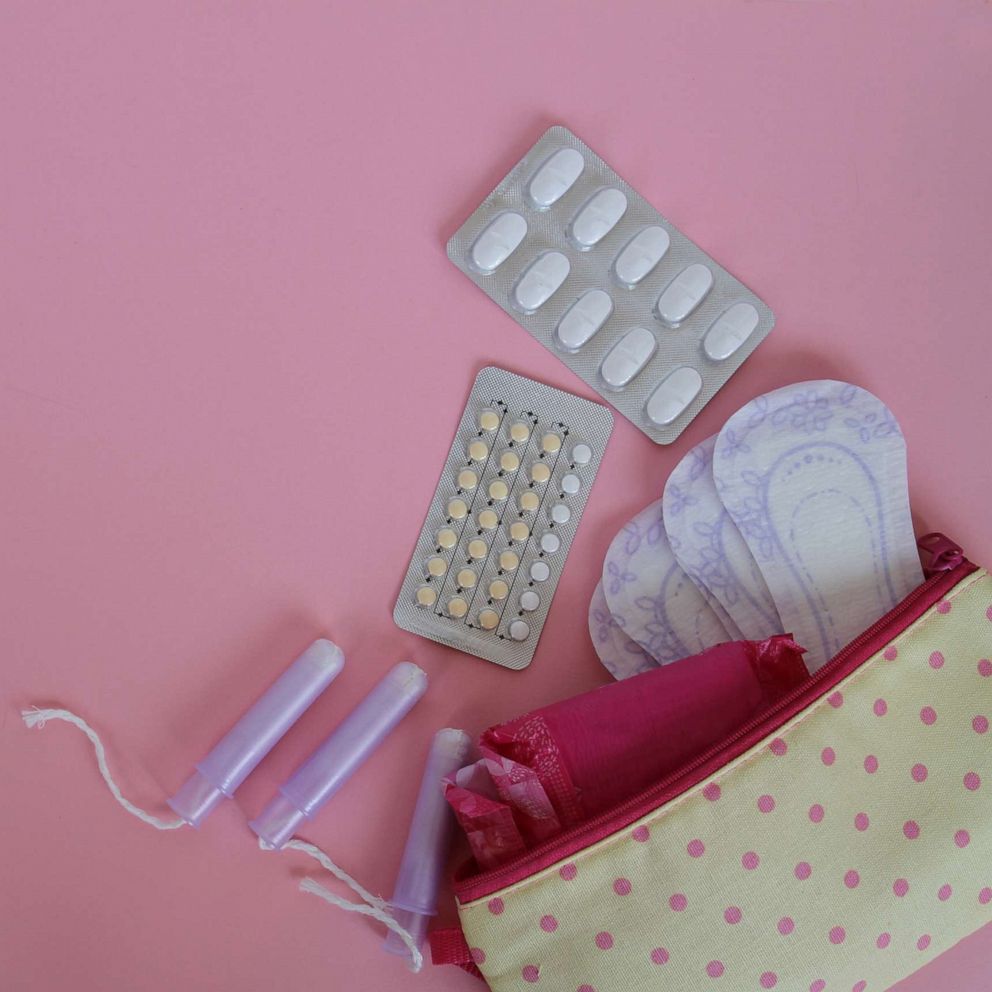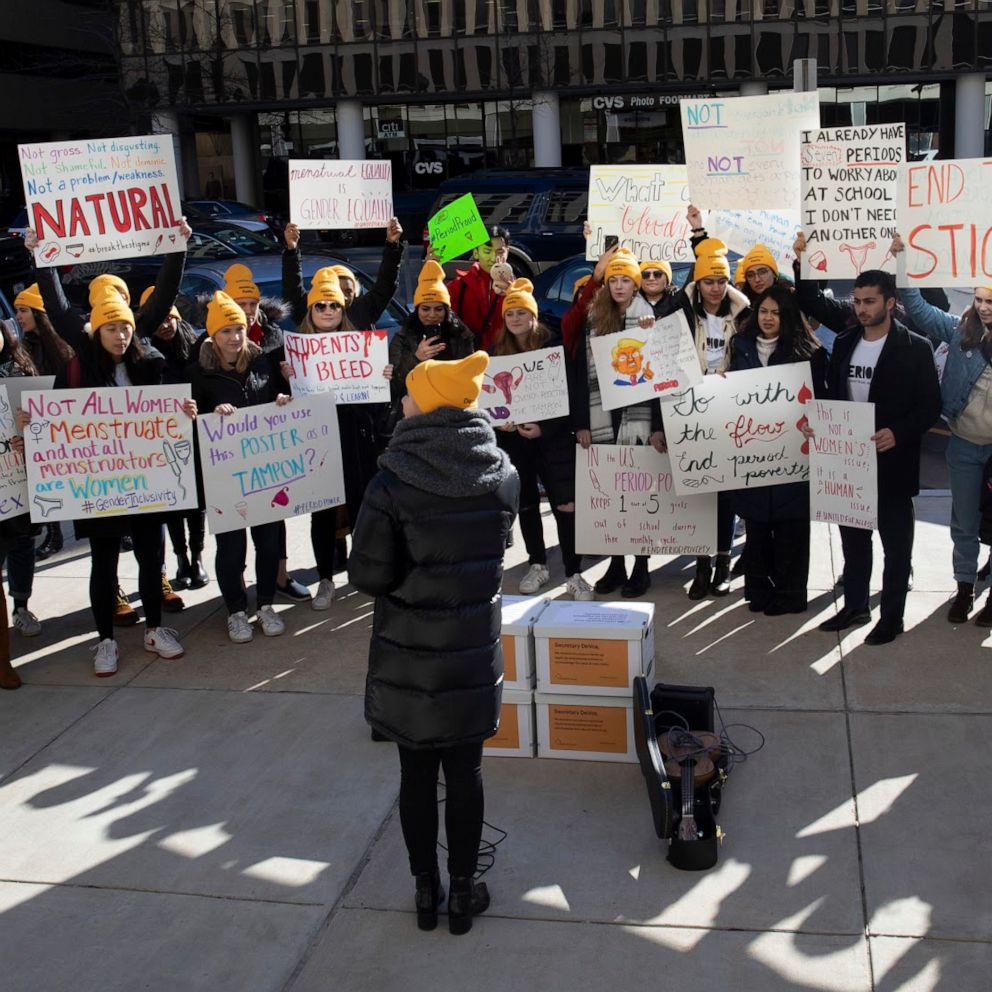Texas eliminates 'tampon tax' on menstrual products, sales tax on baby items
Residents of Texas no longer have to pay a sales tax on menstrual products.
Shoppers in Texas no longer have to pay a sales tax on menstrual products, making the state one of the few in the nation to eliminate the so-called "tampon tax."
A new law that went into effect Friday eliminates the sales tax on feminine hygiene products including items like tampons, menstrual pads and menstrual cups.
In addition to menstrual products, the law, S.B. 379, also eliminates the sales tax on family care items including diapers, baby bottles, baby wipes, maternity clothing and breast milk pump products.
The law, signed by Republican Gov. Greg Abbott in June, makes Texas one of nearly two dozen states that no longer charge a sales tax on diapers, according to the National Diaper Bank Network, a nonprofit organization.
Currently, over one dozen states still charge sales tax on menstrual products, according to the Alliance for Period Supplies, a nonprofit organization that works to end period poverty.
In those states, products like pads, liners and cups are considered non-essential items and are subject to sales taxes.

Advocates for menstrual equity who oppose a tax on menstrual products say the taboo around menstruation and the lack of access to menstrual products hurts women economically because it costs them money for products and may keep them from attending jobs and school. Poor menstrual hygiene poses health risks for women, including reproductive issues and urinary tract infections.
Period poverty, when people cannot afford even the most basic of period supplies like pads and tampons, is an issue that affects women around the world, including the United States.
A 2019 survey of low-income women in St. Louis, Missouri, found nearly two-thirds couldn't afford menstrual hygiene products in the past year, and more than 1 in 5 said they had the same problem every month. The women said they instead had to use cloth, rags, tissues, toilet paper and sometimes diapers or paper towels, according to the report published in the medical journal Obstetrics & Gynecology.
In recent years, the push for menstrual equity has made progress, with states such as California requiring free period products in public schools and colleges.
Last year, the national drugstore retailer CVS announced it was reducing the cost of CVS Health branded period products by 25% in all CVS Pharmacy locations nationwide and would also begin paying the sales tax on feminine hygiene products in states where it still exists.
Texas Republican state Sen. Joan Huffman, a sponsor of the new Texas law, described menstrual products as "essential" to women's "health and well-being."
"Every woman knows that these products are not optional," Huffman said in a statement last year. "They are essential to our health and well-being and should be tax exempt."
Texas' law eliminating sales tax on menstrual and baby products comes as the state continues to enforce several strict abortion laws, including one prohibiting all abortions after six weeks of pregnancy, except in medical emergencies, which the laws do not define.
Under these bans, performing or attempting an abortion is a second-degree felony, punishable by up to life in prison and a fine of up to $10,000. The law also allows private citizens to sue anyone who "aids or abets" an abortion.
ABC News' Nadine El-Bawab and Mary Kekatos contributed to this report.







